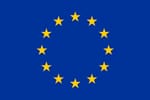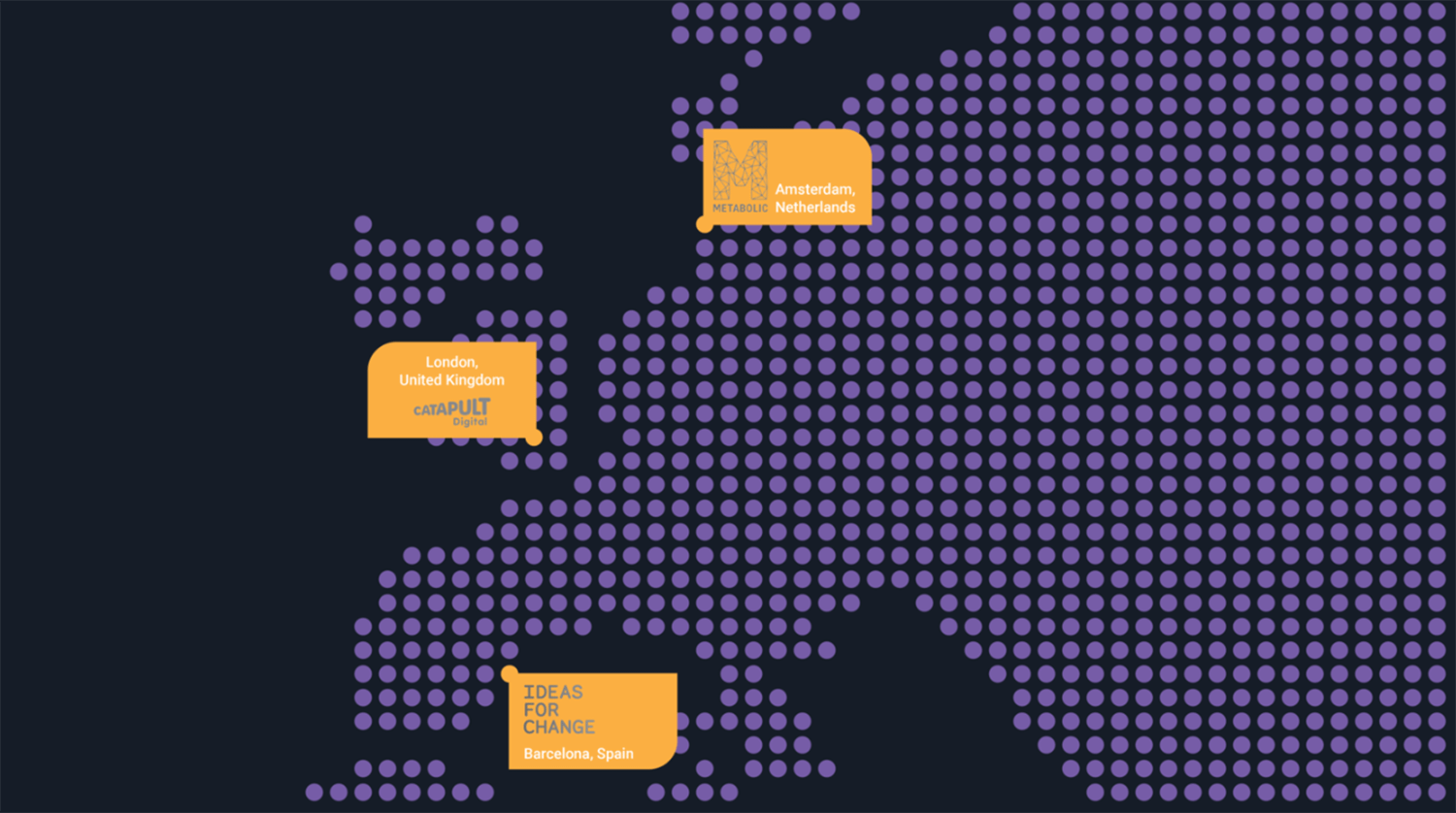DLT4EU: Using blockchain technology for public good
Piloting a European ecosystem of distributed ledger technologies for social and public good.
- Consortium: Metabolic Institute, Digital Catapult, Ideas for Change
- Duration: January 2020 – March 2021

Funded by the Horizon 2020 programme of the European Union. Grant Agreement No. LC-01349961
A powerful new technology
DLTs, the parent technology to blockchains and cryptocurrency, are a ground-breaking innovation that enables decentralized methods for sharing, storing and securing transactions; validating, managing, and tracking access to data; and widening participation within complex, multi-actor decision-making processes -all without intermediaries. This powerful digital technology has the potential for deep social, technological, economic, environmental, legal, and policy impacts over the next 10-15 years: from innovations within financial inclusion and peer-to-peer exchanges of assets and values, to the possibility of more inclusive, convivial, ethical, transparent, and accountable digital societies.
Yet, while the benefits of DLT in the public and social sectors are becoming increasingly clear and small steps are being made, few applications have been fully implemented and scaled. Despite its potential to address prevailing cracks within public and social systems, the current landscape of DLT applications within the European public sector is only just emerging. The private, for-profit nature of existing DLT use-cases, and the fast pace of DLT innovation, has often made it difficult to understand how DLTs can be applied correctly within the social and public sectors.
To gain greater insight on the role and impact of DLT for public good, an experimental environment needs to be developed -one that lowers the barriers associated to experimentation, trial and error, and sharing insights.
Supporting the circular economy and digital citizenship
We believe that impactful DLTs will be built upon strong collaborative relationships between DLT developers, beneficiaries within the social and public sectors, and impact investors. Therefore, the DLT4EU program will connect the expertise of leading innovators, entrepreneurs and developers with real-world, unmet challenges in the public and social sectors to create market-ready social ventures.
The program will focus on two sectors where DLTs have the potential to support a socially-equitable and environmentally-responsible European economy.
- Circular Economy: a new economic model for addressing human needs without undermining the functioning of the biosphere or crossing any planetary boundaries. Potential applications for DLT explored in the program include: supply chain and reverse supply chain traceability, ownership transfers in secondary markets, end of life compliance, and the management of urban green space and public infrastructure.
- Digital Citizenship: digital technologies to better facilitate and engage citizens in public decision-making, service improvement, and social impact initiatives. Potential applications for DLT explored in the program include: digital inclusion and accountability of aid, civic innovation, financial inclusion, personal data management, and community currency models.
A dedicated multidisciplinary team
DLT4EU is led by Metabolic Institute (NL), Digital Catapult (UK), and Ideas for Change (ES). This multidisciplinary team has proven expertise in the fields of DLT, sustainability, public sector innovation, digital social innovation, and social impact investment and venture development from three strategic European geographies: Amsterdam, Barcelona, and London.
Solving real-world challenges through experimentation
DLT4EU will facilitate a distributed accelerator model engaging consortium partners, accelerator participants, mentors and the wider DLT4EU ecosystem. The program’s structure has been designed to stimulate DLT experimentation, innovation and uptake within the public and social sectors in close collaboration with real-world beneficiaries and the challenges they face, who can inform the development of their DLTs and ultimately adopt and scale the resulting applications. Beneficiaries include the City of Amsterdam; Vodafone Foundation; Greater London Authority; Digital Future Society; City of Sant Boi; City of Helsingborg; Agency for Digital Italy and the United Nations Development Programme.
There are two main pillars within the program:
- The Virtual Field Labs (VFL): virtual spaces for collaboration and practical exploration of DLTs for public good in close collaboration with real beneficiaries and challenges.
- Curated Acceleration Program: co-designed and delivered by each partner in London, Amsterdam, and Barcelona, this pillar will underpin the development of the DLT prototypes with a taught program that covers technical expertise, business model development,
Sharing and expanding collective knowledge
The curated acceleration programme, co-designed and delivered by the partner consortium, cross-cuts each VFL with a taught programme covering DLT technical expertise, business model development, legal guidance and open source licensing, impact-driven investment, UX / UI design, and impact assessment.
Outcomes of the programme include:
- Eight Proof-of-Concepts in the form of functional prototypes that demonstrate the value and utility of DLTs in the public good sector. These Proof-of-Concepts (PoCs) are assessed by an independent Evaluation Jury, with three applications awarded follow-on funding.
- A vibrant and sustainable ecosystem of DLT for public and social good across the EU supported by an extended ecosystem comprising a multi- stakeholder group of developers, beneficiaries, advisors, and investors.
The DLT4EU final report acts as a playbook for any organisation interested in developing their own acceleration programme using the Virtual Field Lab concept for emerging technologies. The report also provides insight into why and how experimentation and adoption of DLTs in the public and social sectors across the EU can be supported more broadly. Lastly, it provides guidance for future participants of similar programmes, in particular venture teams and public sector institutions.








"We are truly excited to support this programme and learn with and from them to further our DLT4Good project ambitions of developing innovative policy frameworks and other guidelines for experimentation and broader investment on emerging technologies such as DLTs and Blockchain."
EU Policy Lab, Joint Research Centre, European Commission






